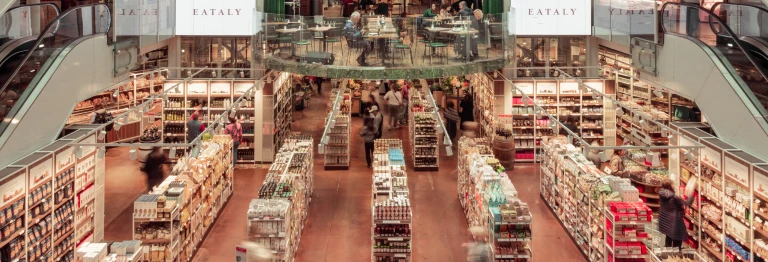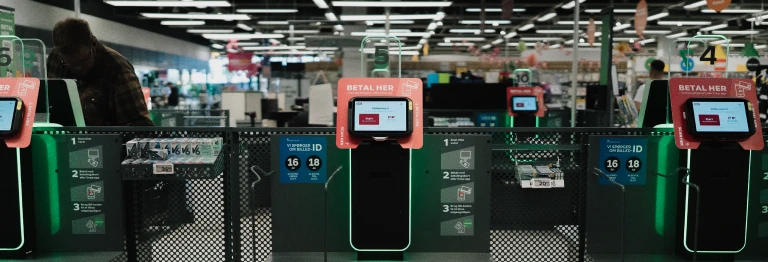
After fending off multiple crises with the force of creativity and hard work, the hotel industry is now entering unprecedented territory. In this new digitalized era, travel is surging – but economic uncertainty looms in the background. Learn how digital momentum can help hotels come out on top.
Hotels have been experiencing a revenue roller-coaster for the past couple of years. After a deep plunge, 2022 showed triple-digit growth. In 2024, travellers remain committed to visiting Europe’s beautiful cities and sights. Yet, the revival comes amidst economic flux, presenting hotel hurdles and opportunities.
As any hotel merchant would know, necessity is the mother of invention. With creativity and hard work, hotels have learned to manage even the most unpredictable crises.
According to Simon Buchwaldt-Nissen, SVP, Head of Hospitality at Nexi, one of the most important lessons learnt is that success comes with harnessing the power of technology:
“As hotels navigate this era of increasing digitization, they find themselves in an intensifying digital battlefield. Today, there is an undeniable pressure on hotels to go beyond traditional hospitality norms, pushing them to create more personalized and uniquely memorable experiences for each guest. This shift is not just about staying relevant; it's about redefining the essence of hospitality in the digital age.”

Adapting to economic fluctuations
In 2023, the overall growth for hotels varied across countries, following a super-strong 2022. But foreign tourist arrivals to Europe were only 1.6 percent below 2019 figures in the final quarter of 2023, according to a report by the European Travel Commission (ETC). Chinese arrivals to Europe, however, displayed a moderate recovery in 2023, standing at 67 percent below 2019 levels. But according to Nexi insights for certain parts of Northern Europe, Chinese spending in hotels did increase a great deal in 2023, so there is for sure a recovery. American tourists were however the largest group of foreign hotel guests in the Nordics, though overall spending in hotels decreased a bit while online purchases increased.
The data points to the fact that high inflation and raised interest rates have not weakened the high enthusiasm for travel to any substantial extent. According to the ETC, the number of Europeans planning to spend more than €1,500 per trip has increased significantly compared to last year, though partly since prices are higher. But tourists are embracing money-saving strategies and off-season travel in the face of rising prices.
All in all, as competition is fiercer in uncertain conditions, new strategies and technologies are necessary to win in the competition – a lot depending on catering the guests’ needs and preferences.
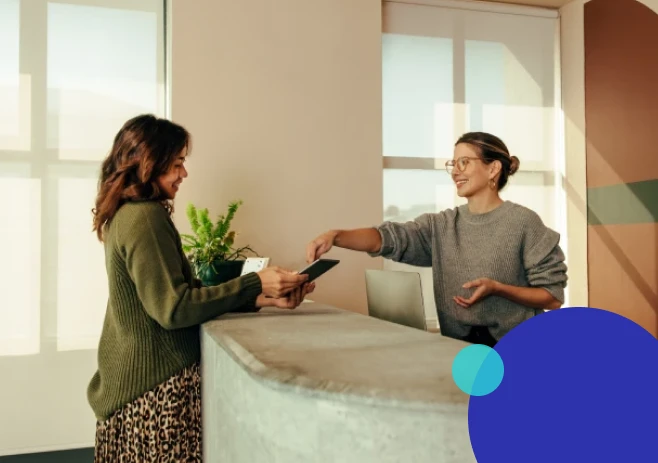
The rise of hyper-personalization in hotels
According to McKinsey, companies that grow faster drive 40 per cent more of their revenue from personalization than their slower-growing counterparts. So, when shaping future guest experiences, hyper-personalization stands out as a top priority in the very guest-centered hotel sector.
“It's no longer just about the warmth of greeting the guest and the firmness of a handshake. It's about the nuanced understanding of each guest's unique preferences—from a personal welcome to recalling the last visit’s experiences and choices. Here, payments play a crucial role in the digital ecosystem as the seamless enabler in this puzzle,” says Simon Buchwaldt-Nissen.
By utilizing omnichannel technology to analyze and respond to individual guest preferences and behaviours in real-time, hotels can offer tailored services that significantly enhance guest experiences. Integrating payment processes with personalized services not only streamlines the guest experience but can also open new revenue streams and decrease costs.
For instance, travellers who work on their leisure trips are increasing, as are hotel guests who pay extra for high-speed internet. As the line between work and leisure continues to blur, offering tailored workspaces and high-speed internet could become imperative to meet travellers' evolving needs.
In this process, it is also important to greet the guests digitally and remember all their preferences - presenting them with all the services to their liking and even offering loyalty discounts.
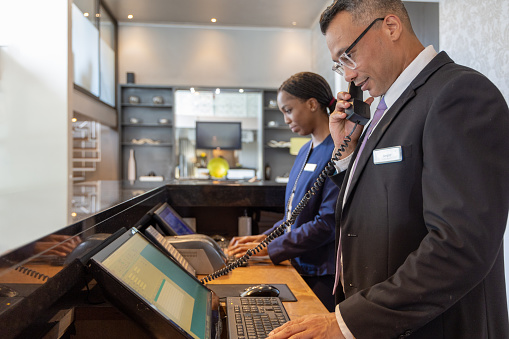
Redefining guest experiences with cutting-edge technologies
With online bookings being the largest spending category in the European hotel sector, it is clear that consumer preferences are evolving towards digital convenience and efficiency. But hotels can rarely do it all alone.
“It’s super important that hotels manage to team up with technology affiliates that allow them to personalize. Payments play a key role here, acting as a bridge to other systems, enabling much of the personalized experience. And if the payment experience is not good enough in the end, from completely failing to being too complicated or slow, this negative last impression will stay with the customer, possibly turning loyal visitors into deflectors”, Simon Buchwaldt-Nissen points out.
Through partnerships with payment providers that integrate with the relevant property management systems, online travel agencies, and internet booking engines, hotels can expand their reach and attract new customers, as everything from hotel bookings to spa reservations can be done without presenting a payment card. In this environment, multiple digital advantages can be gained.
In the effort to personalize the guest experience, hotels need to accept a wide variety of payment methods and card schemes for guests from all over the world. But there are also a multitude of value-added services with different types of benefits for hotels. For example, the ability to offer the guest to pay in their own local currency, which creates transparency and a feeling of security, thus increasing customer satisfaction.
How to implement personalization
Imagine being a guest at your own hotel. Before arrival, the system automatically and securely tokenizes the credit card, meaning the key information that all or most spending revolve around, in the moment of booking. This creates an environment of truly seamless payments and guest experiances, thus increasing the comfort and convenience.
Before arrival, your phone offers a personalized retreat—choose your room, set the ambiance, even the preference of your pillows. Upon arrival, your digital key unveils a sanctuary tailored just for you. Your every desire, a tap away, from a spa oasis to a gourmet feast under the stars, all while invisible algorithms curate your perfect experience. As you depart, a heartfelt digital note beckons your return, crafting not just a stay, but a story woven with the threads of technology, where every visit is a chapter in a saga of personalized needs, unmatched by any other hotel.
Going into a new era for hotels, a seamless blend of technology, personalized service and local market knowledge, offers experiences that resonate deeply with travelers, compelling them to return. With these key factors in mind, especially two types of hotels will become successful.
“On one side, we will see the rise of low-cost providers, where technology plays a crucial role in running properties efficiently and cost-effectively. On the opposite side, there will be high-end hotels who excel in personalization and catering to the unique needs and preferences of each guest. But the truth is, technology will be essential to both segments of the market”, ends Simon Buchwaldt-Nissen.
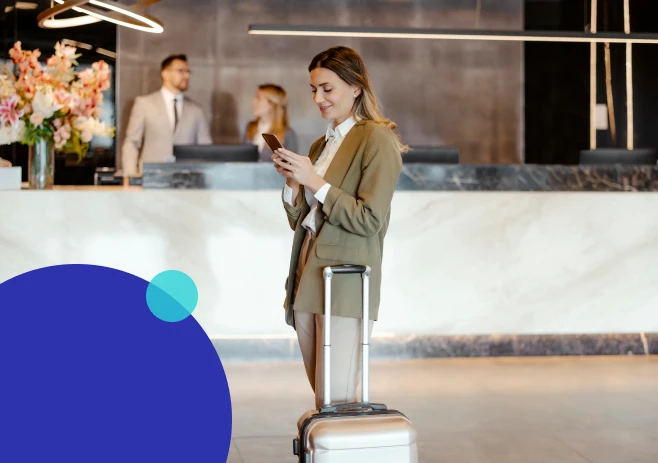
Concluding advice for hotel merchants
- Integration possibilities and local knowledge matter
The future of hotels lies in the ability to deliver exceptional experiences that resonate with the modern hotel guest. This requires choosing the right payment partner, with local knowledge about specific markets, that can provide the right tools. For example, integration to all relevant property management systems, a full range of payment means, modern terminals, eCom solutions, value added services and so on.
- Fully embrace digitalization
Convenient technology solutions are a magnet for both business and leisure hotel guests. Integrating online and offline sales and establishing integrated unattended self-check-in/out are great steps to embrace digital solutions. Other examples are the use of apps or smart rooms. These can also add revenue streams, cut costs and combat staff shortage.
- Optimize and tailor the guest experience
The whole journey from booking to leaving the hotel should be integrated into one digitalized experience. The guest’s experience for the entire hotel journey can be enhanced in several ways. For example by using technology to customize emails, in-room solutions, the possibility to use one’s preferred payment method or pay with the guest’s preferred currency. Additional convenience can be gained by adding integration of loyalty points from both online and offline sales to foster returning guests.
